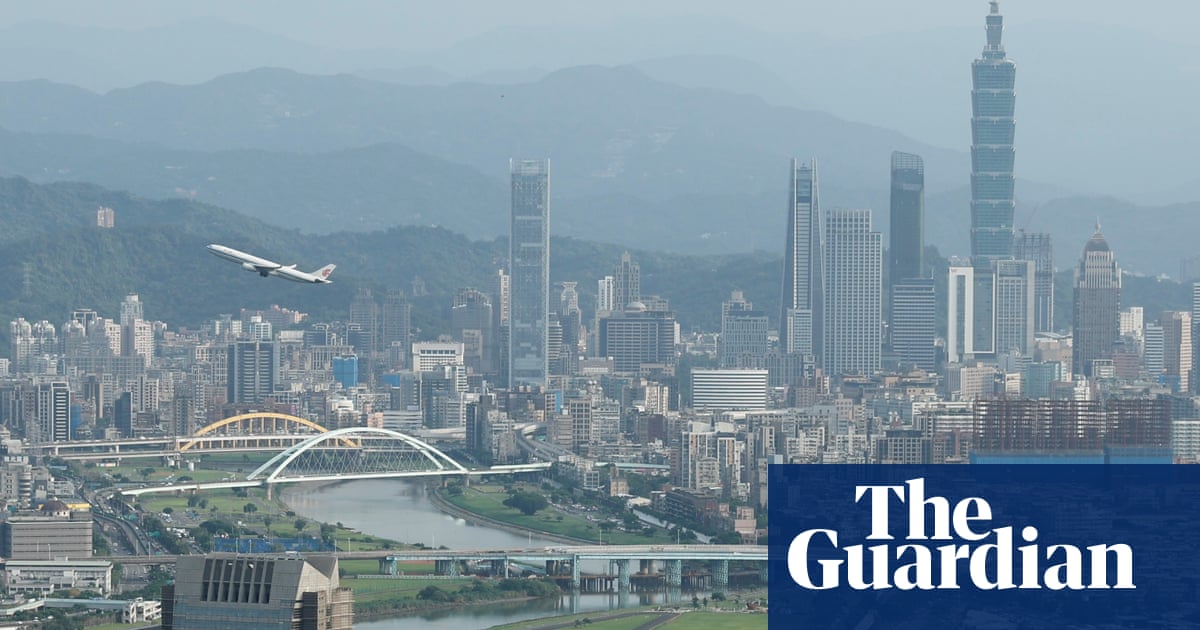A group of five Labour MPs is travelling toTaiwanfor meetings with government officials for the first time since Labour came to power.
TheLabourFriends of Taiwan delegation is due to land in Taipei on Sunday morning and is expected to meet senior government officials, parliamentarians, unions, businesses and civil society groups.
It includes Navendu Mishra, the Labour MP for Stockport, Paula Barker of Liverpool Wavertree, Connor Naismith of Crewe and Nantwich, Gill Furniss of Sheffield Brightside and Hillsborough, and Tahir Ali of Birmingham Hall Green.
The visit follows a trip by Tsai Ing-Wen, the former president of Taiwan,to the UKweeks after China staged large-scale military drills around Taiwan.
This is the first delegation of Labour MPs to visit Taiwan since Labour entered government last summer. The last trip in March 2024 drew a strong reaction from Beijing.China’s embassy in London called ita “blatant violation of the one-China principle and serious interference in China’s internal affairs” and warned that “any act that undermines China’s interests will be met with forceful responses”.
Mishra, who is the chair of Labour Friends ofTaiwan, said the visit was “about more than symbolism. It’s about real, practical partnerships between the UK and Taiwan – two societies that value freedom, fairness and international cooperation. We want to ensure Taiwan has friends in the UK parliament who will speak up when it matters most.”
Last month,China launched large-scale military exercisesaround Taiwan, accusing its leaders of being “separatists” and “parasites” who were pushing the democratically run island into war.The Foreign Office expressed concernabout the drills and said they were “part of a pattern of activity which is increasing tensions and risking dangerous escalation in the Taiwan Strait”.
Taiwan, which has never been ruled by the People’s Republic of China, operates as a sovereign state with its owndemocratically elected government, military and currency. Its people overwhelmingly oppose the prospect of Chinese rule. Beijing, however, claims Taiwan is Chinese territory and is building capability potentially to seize it by military force.
Speaking at an event in the House of Lords this month, Tsai said that “Taiwan’s insistence and the resolve of its people are crucial deterrents to China’s expansionist ambition”.
“Taiwan will continue contributing to security and democracy in the region and we will deepen our relationships with fellow democracies so that we are all better equipped to overcome challenges and to safeguard our democratic freedom,” she told MPs and peers. Tsai also addressed the University of Cambridge and the London School of Economics during her UK trip.
Sign up toFirst Edition
Our morning email breaks down the key stories of the day, telling you what’s happening and why it matters
after newsletter promotion
The Guardian reported last yearthat Tsai scrapped a plan to visit London during the autumn after the Foreign Office intervened because it coincided with David Lammy’s visit to China.
Andrew Yeh, the executive director of the China Strategic Risks Institute, a thinktank, said: “There is a growing realisation across Westminster and Whitehall that Taiwan matters deeply to the UK: as a trade and investment partner, but also as a vital link in the UK’s critical supply chains – from MRI scanners to advanced weapons systems.
“As the UK faces growing ‘hybrid threats’ from both Russia and China, it has much to learn from Taiwan’s resistance to China’s grey-zone coercion – from countering disinformation campaigns to protecting critical undersea infrastructure.”
